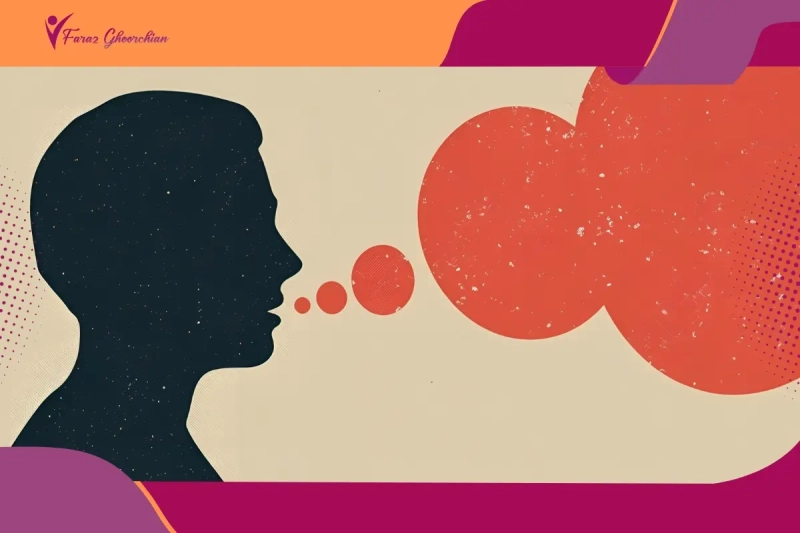Emotional dependence is when someone leans too heavily on another person for their sense of worth, happiness, and self-esteem. We’ve all got those special people in our lives—those we love more than anyone else and feel we can’t do without. But is this kind of attachment healthy? Stick with us as we delve into what emotional dependence really means and explore some tips on how to break free from it.
Understanding Emotional Dependence
Emotional dependence is like a psychological anchor that drags down your self-esteem and confidence. It makes you constantly crave approval from others and feel secure only through your relationships. Whether we admit it or not, we all sometimes use emotional dependence to fill those emotional voids we can’t seem to manage on our own.
This kind of dependence usually shows up in family and romantic relationships but can also be found in close friendships. You might be wondering, what are the telltale signs of emotional dependence? Let’s dive in and find out.
Terrified of Being Alone and Rejected: If you’re constantly fearing being left alone or abandoned, and you’ll go to any lengths to get someone’s attention and approval, you might be emotionally dependent.
Craving Approval and Attention: When your self-esteem is tied up in what someone else thinks of you, and you’re always seeking their praise, love, and attention, it’s a red flag for emotional dependence.
Controlling and Jealous: To keep your relationship intact, you might find yourself trying to control your partner’s actions and limit their interactions with others. This often comes hand in hand with intense jealousy towards anyone else in their life.
Over-the-Top Sacrifices: If you’re willing to ignore your own needs, desires, and even health to keep your loved one happy, making unnecessary sacrifices, that’s a sign of emotional dependence.
Feeling Empty Without Them: When they’re not around, or you don’t have their approval, you feel empty, worthless, and depressed. This is a classic indicator of emotional dependence.
Causes of Emotional Dependence
Emotional Deprivation in Childhood: If you grew up lacking the love, attention, and support you needed, you might find yourself clinging to others in adulthood, seeking the emotional nourishment you missed out on.
Low Self-Esteem and Confidence: When you don’t feel good about yourself, you tend to look for others to lift you up, making their validation crucial to your self-worth.
Fear of Loss: The dread of losing love, affection, and support can anchor you to someone. This fear often springs from past heartbreaks, like a painful breakup, divorce, or the death of a loved one.
Unhealthy Behavioral Patterns: If you’ve seen emotional dependence play out in the relationships of your parents or close relatives, you might unconsciously adopt these patterns, repeating the cycle in your own life.
While these roots often lie in our childhood and psychological makeup, the deeper causes of emotional dependence are buried in the intricate layers of our psyche.
Lack of Identity
Your identity is the unique blend of beliefs, values, and traits that make you, you. If you don’t have a strong sense of who you are, you might feel like you’re not enough on your own, relying on others to validate your existence and giving rise to emotional dependence.
Lack of Self-Esteem
Self-esteem is like the value tag you put on yourself. When it’s low, you don’t believe in your worth and look to others for validation. You end up chasing their attention and approval, feeling empty and worthless without their presence and affirmation.
Misconceptions About Love
Some people hold fairy tale beliefs about love and relationships. They might think true love means being utterly dependent on their partner, believing they can’t have a happy life without them. These misguided beliefs pave the way for emotional dependence.
Lack of Personal Responsibility
Taking responsibility for oneself means tending to your own needs, desires, and emotions. When you shirk this responsibility, you end up relying on others to meet these needs. This reliance can turn into emotional dependence in relationships.
Is Emotional Dependence Different from Emotional Support?
While both “emotional dependence” and “emotional support” hint at closeness in relationships, there’s a fine line that makes all the difference.
Emotional dependence is an unhealthy state where your sense of worth, self-esteem, and happiness is tied to someone else’s presence and approval. This excessive dependence comes with intense fear of loneliness, obsessive need for approval, controlling behavior, needless sacrifices, and a feeling of emptiness without the other person.
Emotional support, on the flip side, is a vital and positive element in healthy relationships. It’s about understanding, empathy, encouragement, and helping each other face life’s challenges. Emotional support respects your independence and individuality, aiming for the growth and improvement of both individuals in the relationship.
How to Break Free from Emotional Dependence?
Breaking free from emotional dependence is a journey that requires effort and perseverance. Along the way, you’ll face various challenges and need to make fundamental changes in your beliefs, behaviors, and emotions.
Understanding the Roots of Dependence
The first step to overcoming emotional dependence is to dig deep and understand its roots. Be honest with yourself and explore the underlying reasons behind your dependence, diving into your past experiences and inner psyche. Questions like “Why am I so dependent on others?” and “What needs in my relationships are driving this dependence?” can help you gain deeper insights and find suitable solutions.
Boosting Self-Esteem
Low self-esteem is a major factor in emotional dependence. If you don’t believe in your own worth, you’ll constantly seek validation from others. To break free, start by boosting your self-esteem. Focus on your strengths and abilities, build your self-belief, and learn that you are valuable and lovable without needing others’ approval and attention.
Strengthening Independence
Independence is a key trait of healthy and strong individuals. Being independent means believing in yourself and your abilities, and handling your responsibilities without relying on others. Emotional dependence weakens your independence, making you needy. To strengthen your independence, learn to manage tasks on your own, make your own decisions, and take responsibility for your life.
Effective Communication
Effective communication is the foundation of healthy relationships. Dependent individuals often shy away from clear and honest communication out of fear of rejection and not being accepted, failing to express their needs and feelings transparently. Learning effective communication skills helps you articulate your needs and emotions clearly, preventing misunderstandings.
Letting Go of False Beliefs
Some people have misconceptions about love and relationships. They might think that true love means being utterly dependent on their partner and that they can’t be happy without them. These false beliefs lay the groundwork for emotional dependence. To break free, you need to identify these misconceptions and replace them with healthy, realistic beliefs about love and relationships.
Talk to a Therapist
Teaming up with a trusted psychologist or psychiatrist can make a world of difference in identifying and breaking down destructive patterns. Emotional dependence often has roots in childhood. A lack of secure attachment to a parent or caregiver can lead to dependency issues in adult relationships. Different attachment styles contribute to emotional dependence. A therapist can help you uncover past issues that have led to your current relationship anxieties and guide you toward healthier ways to fulfill your emotional needs.
Final Thoughts
Emotional dependence is a problem that builds up gradually for many people, and thus, it requires patience to overcome. It’s best to start by thoroughly understanding the issue and then use various methods to address it.
















